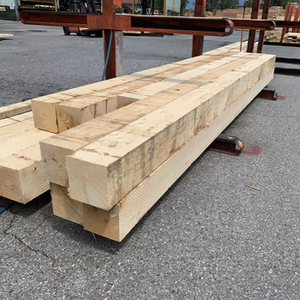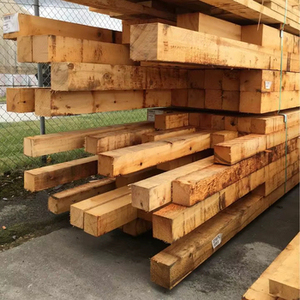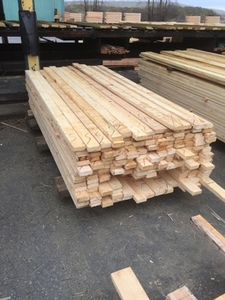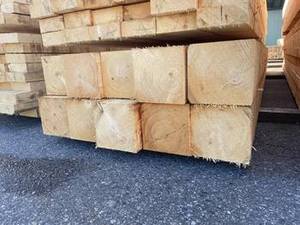
All categories
Featured selections
Trade Assurance
Buyer Central
Help Center
Get the app
Become a supplier

(890 products available)














































A cedar plank ceiling is a type of ceiling made from cedar wood planks. Cedar wood is known for its pleasant aroma, attractive reddish-brown color, and natural properties. These characteristics make it a popular choice for ceilings, especially in homes and spaces where a warm, rustic, or natural aesthetic is desired. Cedar wood is usually used for outdoor decks, but it is also ideal for indoor use due to its long-lasting and durable nature. A cedar plank ceiling adds a touch of elegance to any space.
The cedar plank ceiling comes in different types according to their finish and function. They include;
Enhancing Aesthetics
Cedar wood ceilings are beautiful and have a natural touch. Their warm and rich tones give any space a cozy and luxurious feel. The unique grain pattern of the cedar ceiling makes it visually appealing. Whether the space is residential or commercial, cedar plank ceilings make it look and feel better.
Adding Texture and Warmth
A cedar ceiling does not just add beauty; it also gives the room a warm and inviting feel. The natural reddish-brown color of the cedar wood makes the space feel homely. The wood's subtle variations in color and texture create a lovely atmosphere. A cedar ceiling helps to create a calm and pleasant environment, whether in a living room, bedroom, or other places.
Durability and Longevity
Cedar ceilings are not just beautiful; they are also strong. Cedar wood is known for its strength and stability, so a cedar ceiling lasts a long time. It can withstand regular use without getting damaged easily. This means that the cedar ceiling will keep its beauty and charm for many years. Choosing a cedar plank ceiling is a smart long-term investment in any property.
Easy to Maintain
A cedar ceiling is easy to take care of. Cedar wood is naturally resistant to rot and insects. This means the ceiling won't get damaged by bugs or moisture easily. If the ceiling suffers minor damage, it can be fixed easily without much hassle. Regular maintenance, like dusting or wiping with a damp cloth, is usually enough to keep the ceiling looking good.
Natural Fragrance
Cedarwood has a special, pleasant smell that comes from its natural oils. This scent is not just for show; it has real benefits. The aroma of cedar wood makes the interior feel fresh and clean. It helps to create an enjoyable environment. The natural oils in cedar wood can repel some insects, too. So, the lovely fragrance of cedar wood adds to the charm of the space and serves practical purposes.
Residential Homes:
Living Rooms and Lounges: A cedar ceiling in the living room adds a splash of luxury. The warm hues and natural grain patterns of cedar make the space feel cozy and inviting. The subtle fragrance of cedar enhances the atmosphere, creating a relaxing environment.
Kitchens: Cedar's natural resistance to moisture makes it an ideal choice for kitchen ceilings. It can withstand the steam and splatter that occurs during cooking while adding a touch of elegance to the space. Consider using tongue-and-groove cedar planks for a seamless, easy-to-clean surface.
Bathrooms: Opt for western red cedar or aromatic cedar in bathrooms for their moisture-resistant properties. These species not only look beautiful but also offer the necessary durability in a high-humidity environment. Their natural insect-repelling properties are a bonus for limiting pests.
Commercial Spaces:
Restaurants: A cedar ceiling in restaurants creates a warm, welcoming ambiance for diners. Select cedar with a fine grain and rich color for a touch of sophistication. The ceiling can also help control noise levels, making for a more pleasant dining experience.
Offices: Incorporating a cedar ceiling in office spaces promotes a sense of calm and focus. The natural aesthetics of cedar can enhance the overall design, creating a professional yet soothing environment for work. Consider using lighter-colored cedar for a bright, airy feel.
Outdoor Spaces:
Porches and Patios: A cedar ceiling on covered porches and patios extends the outdoor living season. It adds a natural, rustic charm while providing protection from the elements. Consider leaving the cedar ceiling untreated to allow it to age gracefully and blend with the natural surroundings.
Gazebos and Cabanas: Create a serene retreat with a cedar ceiling in gazebos and cabanas. The natural scents and textures of cedar promote relaxation and connection with nature. Opt for rough-sawn cedar for a more authentic, rustic feel.
Consider the Cedar Type and Their Characteristics
Cedarwood comes in different varieties, and each has a unique features and benefits. Red cedar is famous for its natural resistance to decay and insects. This makes it a suitable option for outdoor and high-moisture areas. Its beautiful grain patterns and aromatic scent add a touch of luxury wherever it is used. On the other hand, western cedar is well-liked for its lightweight nature. It is easy to work with and offers excellent resistance to warping. This makes it a preferred choice for creating stunning aesthetic designs. These include stylish cedar plank ceilings and other interior finishes. Consider the type of cedar when choosing a cedar plank ceiling to ensure they meet the desired performance and aesthetic requirements.
Evaluate the Grain and Coloration
The appearance of the cedar ceiling plank directly affects the overall aesthetic of a space. Consider selecting cedar planks with a tight and straight grain for a classic and refined look. Those with a distinct and bold grain pattern offer a dramatic visual impact. Consider the desired color when choosing cedar ceiling planks. Select the natural, light colors of cedar when aiming for a fresh and a more airy feel. The natural color of cedar tends to vary from one plank to another. This contributes to the rustic charm and warmth of the space when that is the desired style. Consider the staining options when selecting a cedar plank. Light stains enhance the brightness of a room while medium and dark stains add depth and richness.
Assess the Quality and Grade of the Cedar Planks
The longevity and appearance of the cedar plank ceiling are largely influenced by the quality. Choose the cedar planks with the highest quality to get the most out of the investment. Cedar planks come in different grades. The clear grade offers the least knots and imperfections. This makes it the most expensive. The knotty grade, on the other hand, showcases more knots. It is available in most price ranges. The construction grade contains more visible knots and defects. It is mostly used for building projects where a more natural appearance is wanted. Before choosing a grade, it is important to determine the desired visual appearance and budgetary constraints.
Q1: What is a cedar plank ceiling?
A1: A cedar plank ceiling is exactly what it sounds like - a ceiling made up of planks, or boards, of cedar wood. These planks are installed on the ceiling to create a natural, warm, and inviting look. The cedar wood used for a cedar plank ceiling comes from the cedar tree, which is known for its aromatic properties, durability, and resistance to decay and insects.
Q2: Why choose a cedar plank ceiling?
A2: Cedar wood is chosen for a variety of reasons. These include its natural resistance to decay and insects, which makes it a durable option for any ceiling; its aesthetic appeal, as cedar wood has a beautiful grain and color that adds warmth and character to any space; and its aromatic properties, which are particularly appealing to many people.
Q3: Are cedar plank ceilings easy to install?
A3: The installation of cedar planks on the ceiling is quite straightforward. However, the level of difficulty really depends on the specific project at hand. In most cases, installing a cedar ceiling is a simple DIY project. That said, a cedar ceiling can also be a more complex project that requires the assistance of a professional.
Q4: How does one maintain a cedar plank ceiling?
A4: Maintaining a cedar plank ceiling is quite simple. This is because cedar ceilings are really low-maintenance. To maintain a cedar plank ceiling, simply dust it off regularly to remove any accumulated dirt or cobwebs. From time to time, if there is any dirt on the cedar ceiling, use a soft cloth and mild soap to wash it.
Q5: Do cedar plank ceilings require special treatment?
A5: Generally, cedar plank ceilings do not require any special treatment. However, to keep the cedar ceiling looking its best, it is recommended that it be treated every few years. This is to protect the wood and maintain its color. If the natural color of the cedar ceiling starts to change or if water repellency is needed, then a treatment is also recommended.